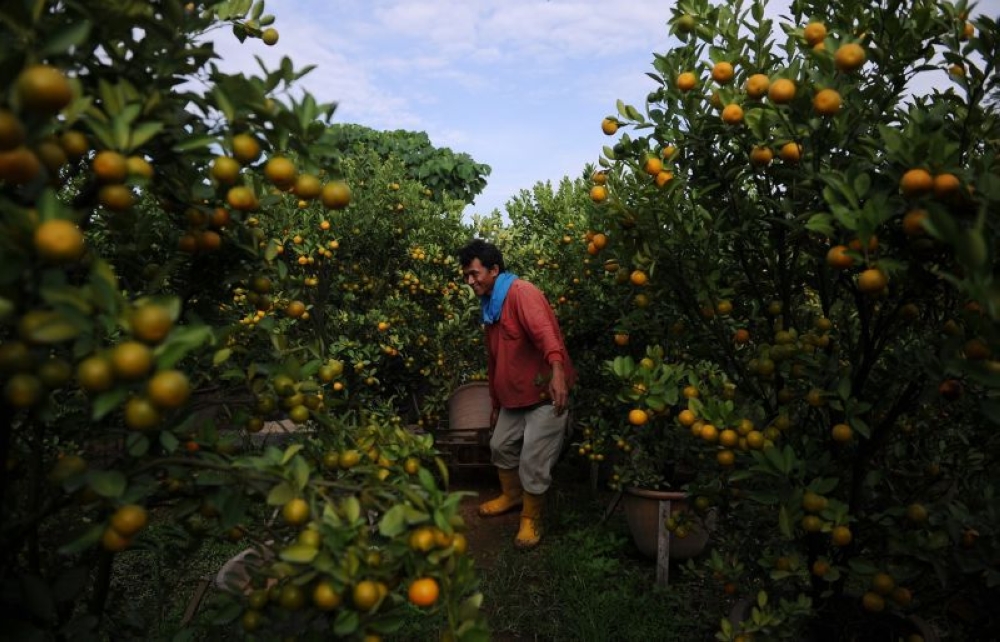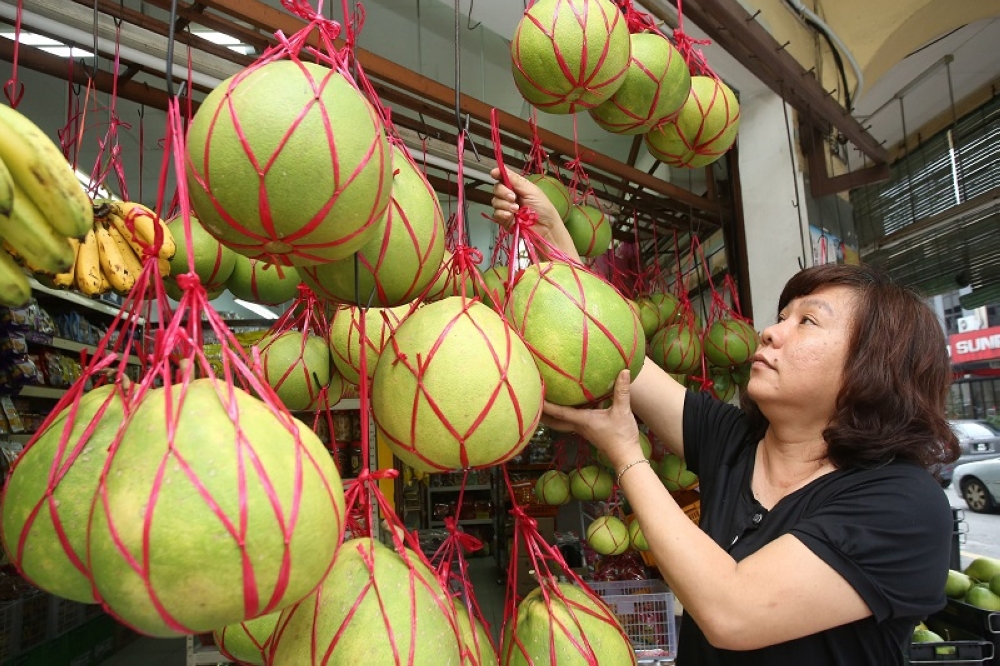Published date
Written by
IPOH, Jan 17 — Oranges are an essential feature of every Chinese New Year (CNY) celebration, whether as a festive treat or a symbolic gift to enliven the occasion.
The Chinese community holds the belief that oranges bring blessings and prosperity for the year ahead, particularly when exchanged as gifts.
“Giving oranges is also a gesture of gratitude for the support received throughout the year, whether in life or business,” said Tan Swee Kong, a pomelo trader, told Bernama.
According to the owner of Go Chin Tambun Pamelo Agro Farm, the size of the fruit holds significance, as larger oranges are believed to bring greater fortune to the recipient.
Tan, 58, further noted that popular choices for Chinese New Year gifts include mandarin oranges, calamansi, and pomelos..
“Mandarin oranges, known as ‘kam’ in Cantonese, mean ‘gold.’ In essence, giving a mandarin orange is equivalent to offering a piece of ‘gold.’ They are typically given in generous quantities,” said the father of three.
“So, gifting a box of mandarin oranges is like presenting a box of ‘gold’ to relatives or acquaintances, symbolising abundant blessings for them,” he added.
As for calamansi, he said it is usually given as a potted plant.

“Calamansi plants are typically used as decorative items and placed in the yard. In Cantonese, calamansi, or ‘kat,’ symbolises ‘peace’ or tranquility for the household,” he explained.
As for pomelos, also known as ‘limau bali,’ Tan noted that their larger size makes them a popular gift during Chinese New Year, as they represent abundant blessings.
“In Cantonese, they are referred to as ‘lok yau’ or ‘ta yau’ (big orange), meaning ‘abundance’ and ‘greatness.’ We are fortunate in Malaysia to have the blessings to cultivate these fruits locally,” said Tan, who hails from Ipoh.

Talking about his business, Tan said the name ‘Go Chin’ was inspired by his late father Chin Too Kam’s Malay friends. His father passed away last year at the age of 80.
“In the past, my father’s orchard produce was sold to middlemen. However, as the harvests grew more plentiful, we found a way to sell directly at night markets,” he added.
“When we started selling at night markets, where most of the traders were Malays, many of them became our friends. They would often say, ‘Let’s go to Chin’s orchard,’ and that’s how our orchard came to be known as ‘Go Chin’,” he shared.
Operating for over 50 years on a 1.6-hectare plot, Tan said that in addition to pomelos, which are priced between RM10 and RM30 each depending on their size, the orchard also produces bananas, guavas, starfruit, durians, and sapodillas. — Bernama
